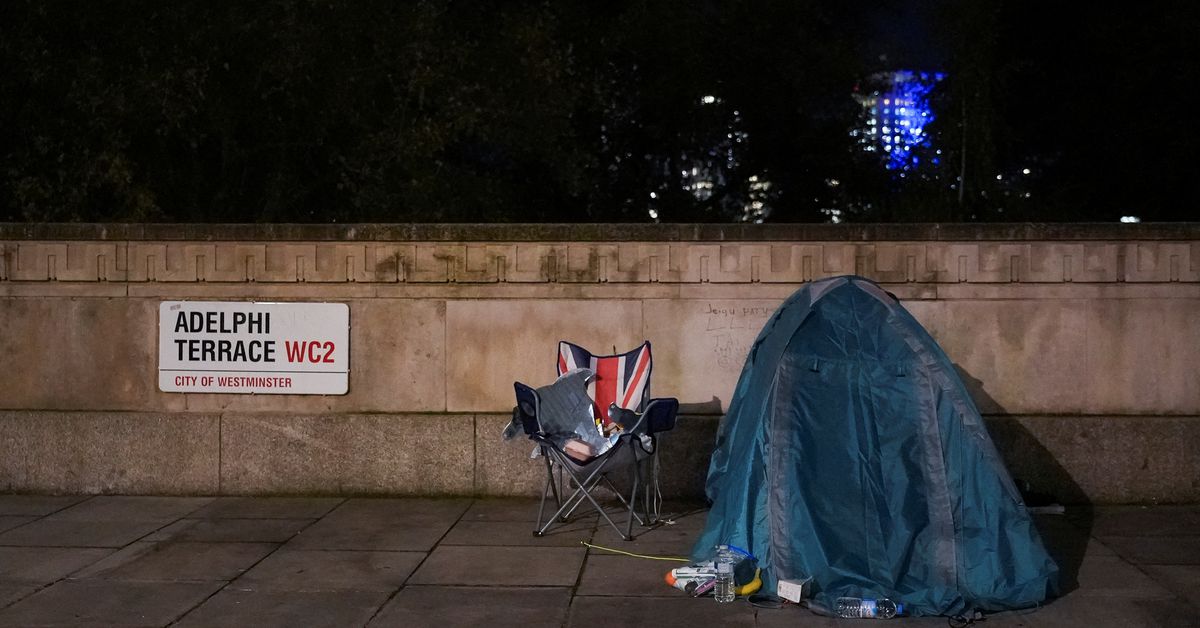
LONDON, Nov 7 (Reuters) – In a dark alleyway in central London, Billy and Jay have set up a two-person tent, with cardboard and sleeping bags spread out on the floor in an effort to keep out the cold November night.
The two men met on the streets and joined forces for food and shelter.
“It’s not a house, but it’s somewhere where you can call a home, where you’re dry,” said 21-year-old Billy, originally from Manchester in northern England, who has been sleeping rough for two months after being discharged injured from the army.
Britain’s interior minister Suella Braverman has floated the idea of limiting the use of tents by homeless people, in a move widely criticised by charities, London Mayor Sadiq Khan and even some lawmakers in the governing Conservative Party.
“We cannot allow our streets to be taken over by rows of tents occupied by people, many of them from abroad, living on the streets as a lifestyle choice,” Braverman said on X.
For Billy and Jay, 50, their tent is a lifeline — particularly as they had to raise the money to buy a new one after the tents they had were set on fire, leaving them with almost no possessions.
“It’s disgusting, they’re putting all their efforts into hiding the problem (rather) than solving the problem,” said Jay. “No one would choose to be in this position … It makes me mad thinking about it.”
“I would absolutely love for them to spend a week in our shoes, just to see what it’s like,” he added.
In the run-up to the 2019 election, the Conservatives promised to end rough sleeping by 2024.
“We are reaching breaking point here and we must see interventions put in place to reduce this,” said Jasmine Basran, head of policy and campaigns at homelessness charity Crisis.
Figures from the Combined Homelessness and Information Network (CHAIN) showed just over 4,000 people were seen sleeping rough in London between July and September, up 12% on the same period last year.
“It’s depressing,” said Jay, describing life sleeping rough, which he has done for more than two years. “You don’t even want to get in touch with your family or your friends. You don’t want them to see you in the state you’re in … you can’t sleep properly, you don’t eat properly. It’s horrible.”
Reporting by Jeevan Ravindran; Editing by Nick Macfie
Our Standards: The Thomson Reuters Trust Principles.
